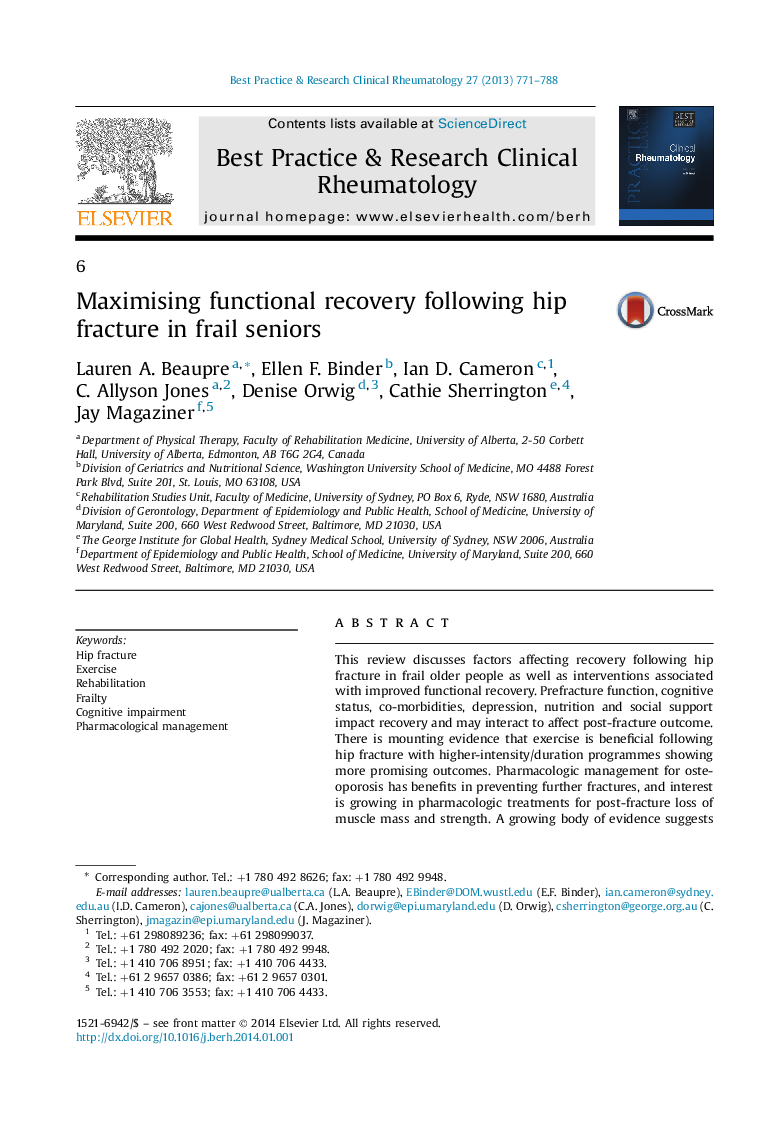| Article ID | Journal | Published Year | Pages | File Type |
|---|---|---|---|---|
| 3343031 | Best Practice & Research Clinical Rheumatology | 2013 | 18 Pages |
This review discusses factors affecting recovery following hip fracture in frail older people as well as interventions associated with improved functional recovery. Prefracture function, cognitive status, co-morbidities, depression, nutrition and social support impact recovery and may interact to affect post-fracture outcome. There is mounting evidence that exercise is beneficial following hip fracture with higher-intensity/duration programmes showing more promising outcomes. Pharmacologic management for osteoporosis has benefits in preventing further fractures, and interest is growing in pharmacologic treatments for post-fracture loss of muscle mass and strength. A growing body of evidence suggests that sub-populations – those with cognitive impairment, residing in nursing homes or males – also benefit from rehabilitation after hip fracture. Optimal post-fracture care may entail the use of multiple interventions; however, more work is needed to determine optimal exercise components, duration and intensity as well as exploring the impact of multimodal interventions that combine exercise, pharmacology, nutrition and other interventions.
